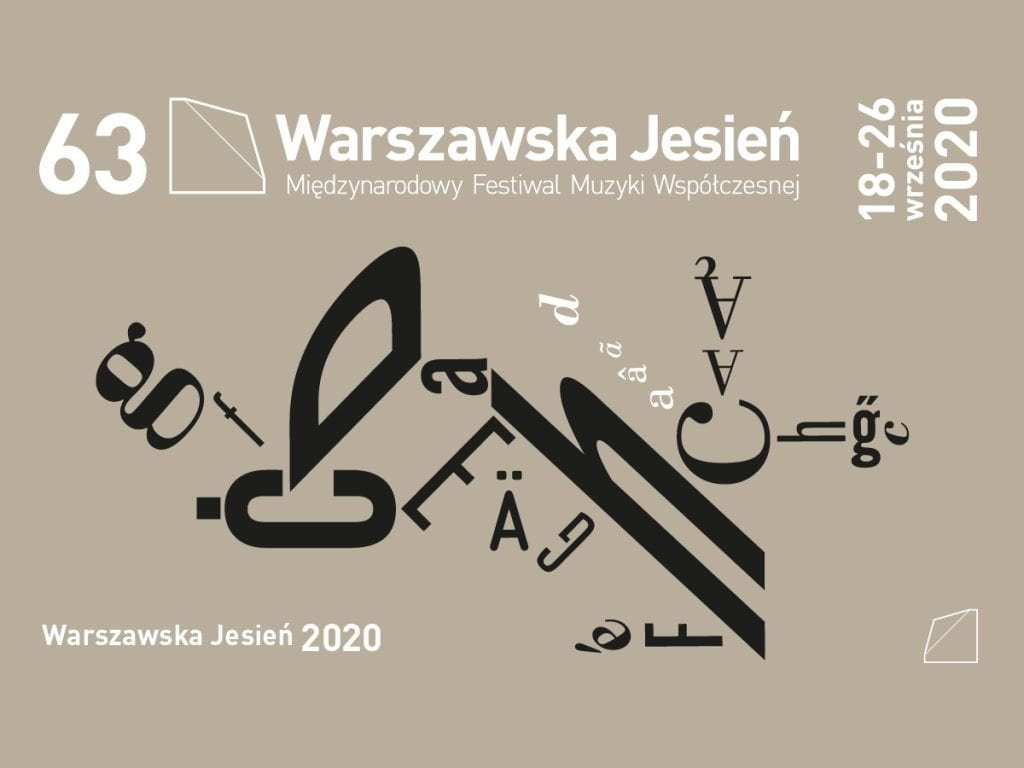By Marek Zebrowski
Warsaw Autumn Sounds
Mieczysław Kominek, President of the Polish Composers’ Union (ZKP) and Director of the Polish Music Information Centre in Warsaw (POLMIC), recently sent us the sound chronicles of the 2020 Warsaw Autumn Festival. This time around it is a set of three CDs, featuring the highlights of concerts that took place between September 18-26, 2020.
The first CD opens with the premiere presentation of two works by the ElettroVoce Ensemble—comprised of composer/performers Agata Zubel, Cezary Duchnowski, Barbara Okoń-Makowska, Aleksandra Koniuch, and Piotr Papier— entitled Whims for semantoabsorbing phonotyser (2020) and Whims for desemantic verbaphone (2020)]. These are followed by premieres of compositions by Aleksandra Kaca (rilievo), Mikołaj Laskowski (Infectious (Feel It)), Joanna Woźny (canti in/versi), and Żaneta Rydzewska (don’t look), as well as a work by Kuba Krzewiński (Contre no. 2). Besides the ElettroVoce Ensemble, the list of performers on this disc includes the Polish National Radio Symphony Orchestra in Katowice (NOSPR), Chopin University Big Band, Warsaw Philharmonic Choir, and Lutosławski Piano Duo, among others.
The second CD highlights a variety of different ensembles (including the celebrated Kwadrofonik Ensemble and the European Workshop for Contemporary Music) in premieres of works by Monika Szpyrka (Zoom in/dolly out), Martyna Kosecka (Isorropia. In Search of Balance), Teoniki Rożynek (Float), Rafał Zapata (Futility), and Grażyna Pstrokońska-Nawratil (The Nightingale and the Stone).
The third CD presents the NFM Leopoldinum Orchestra (as well as the NFM Leopoldinum String Trio) in works by Paweł Hendrich (Prismis), Tomasz Skweres (Concertino), and Przemysław Scheller (The Little Match Girl), as well as world premieres by Anna Sowa (Message for the Year of the Metal Rat II) and Ewa Trębacz (Metanoia).
Another CD that was enclosed in this great POLMIC gift is a presentation of music by several Slovakian composers, including Ilja Zelenka, Miro Bázlik, and Vladimir Bokes. Titled Last Words, it featured bass Sergej Kopčák and the Quasars Ensemble under the direction of Ivan Buffa. The last track on this recording, Tenebrae for Brass and Chamber Ensemble, is a work by Roman Berger, a Polish-Slovak composer, theoretician and writer. Born in 1930 in Cieszyn, he studied in Katowice and later continued his studies in Bratislava, where his family had moved in the late 1940s. Beginning in the 1970s, Berger’s music has been performed extensively throughout Europe and his writings on philosophy, music theory and analysis appeared in print. Berger is a laureate of the 1988 Herder Prize in Vienna, a 2012 Polish Composers’ Union Prize, and a 2013 Diploma of the Papal Council for Culture. He was also recognized by the President of Poland with the Honorary Cross of Merit in 2012. Roman Berger died in Bratislava in 2020.
Chamber Music Galore!
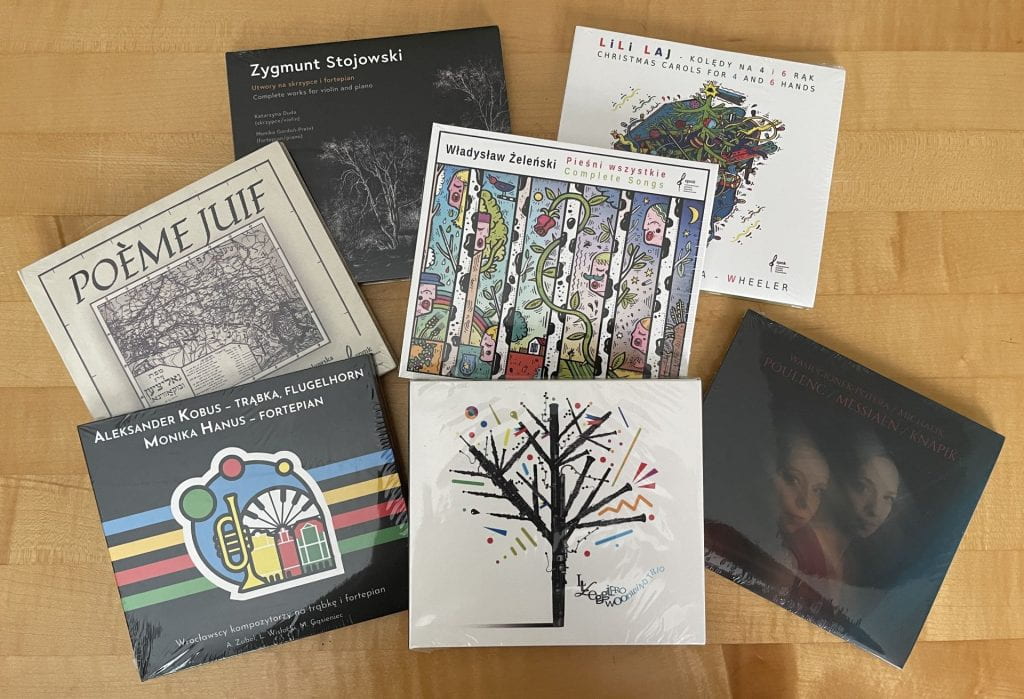
For several years now, we have collaborated with the Polish Chamber Musicians’ Association (SPMK) on a variety of concerts in southern California. In March, two of the Society’s most prominent members–pianists Grzegorz Mania (who also serves as the SPMK President) and Piotr Różański–presented a number of fascinating programs for audiences in Southern California. During their visit, the pianists stopped by the Polish Music Center on an academic research errand and yet again donated a number of excellent recordings from their own SPMK label as well as two books to the PMC’s collection.
The list of gifts begins with a CD of Christmas Carols for Piano 4- and 6-hands (SPMK 22) that features a number of SPMK members, including Marta Mołodyńska-Wheeler, Anna Justyna Duda, Monika Gardoń-Preinl and (of course) Grzegorz Mania. Their selection of the most loved and best known Polish Christmas carols in attractive multi-hand arrangement by Marta Mołodyńska-Wheeler is a delight to hear at any time of the year, regardless of the season.
The next recording of works by Francis Poulenc, Olivier Messiaen, and Eugeniusz Knapik (SPMK 27) features a rather mysterious, impressionistic-looking photo of the performers—violinist Małgorzata Wasiucionek and pianist Sylwia Michalik—on the cover. The chosen repertoire of Poulenc’s Sonata for Violin and Piano, Messiaen’s early Theme and Variations for Violin and Piano, and Knapik’s Partita for Violin and Piano show these performers as great fans of two great French composers and their musical language. Wasiucionek and Michalik also seem quite comfortable with the more modern idiom represented by Knapik’s work that, interestingly enough, was in part inspired by French music traditions and Knapik’s unfulfilled wish to study with Messiaen.
Still another very interesting CD we received from the SPMK representatives during their sojourn in Los Angeles is a presentation of music for trumpet and piano by three Wrocław-based composers, Mirosław Gąsieniec, Leszek Wisłocki and Agata Zubel (SPMK 28). The latter is represented on this recording by her 1994 composition, alla Bergerette, while the opening track on this CD is Wisłocki’s Impresja. A good part of the disc, however, is devoted to compositions by Gąsieniec, whose Concerto di barocco and six shorter works complete the musical offering on this release.
Another great artistic effort by several members of the Polish Chamber Musicians’ Association is their CD of Complete Songs by Władysław Żeleński (SPMK 23-26). This late romantic composer has been finally recognized as a prolific author of music for voice and piano with no less than 94 tracks on this 4-CD album! On it we can hear such acclaimed vocalists as Łukasz Hajduczenia, Monika Korybalska, Karol Kozłowski, Urszula Krygier, Ewa Leszczyńska, Julia Malik, Magdalena Molendowska, Sylwia Olszyńska, and Agata Schmidt, while a multitude of pianists, including Mischa Kozłowski, Grzegorz Mania, Marta Mołodyńska-Wheeler, Julia Samojło, Katarzyna Ewa Sokołowska, Olga Tsymbaluk, and Bartłomiej Wezner share their artistry as skilled accompanists on this recording. This enormously complex project must have required an exceptional amount of logistics and careful coordination, and the result is both admirable and memorable.
The LLLeggiero Woodwind Trio (Maksymilian Lipień, oboe, Piotr Lato, clarinet, and Damian Lipień, bassoon), recorded two well-known trios by Witold Lutosławski and Antoni Szałowski for the SPMK label (SPMK 16). Apart from these concert repertoire staples, this trio of artists reached for some lesser-known works, including Andrzej Dobrowolski’s neoclassical Trio na obój, klarnet i fagot (written in 1956), Benedykt Konowalski’s Mini-Rondo (composed in 1973), and Wojciech Widłak’s Salve Regina (published in 2005).
Another interesting recording from SPMK is titled Poème Juif (SPMK 20) and features music by Dmitri Shostakovich (Songs from the Jewish Folk Poetry, Op. 79), Szymon Laks (Elegy for the Jewish Villages and Eight Popular Jewish Songs) as well as three of Maurice Ravel’s Jewish-themed songs: Kaddisch, L’énigme éternelle, and Meyerke. The performers on this release include soprano Urszula Jankowska, mezzo-soprano Elżbieta Pańko, tenor Jerzy Knetig and pianist Katarzyna Jankowska-Borzykowska.
Finally (at least for the time being, hopefully, as far as SPMK’s generosity is concerned), the last recording in this group donated to our sound library by Grzegorz Mania is very close to our hearts. It presents two copies of Zygmunt Stojowski’s Complete Works for Violin and Piano (SPMK 21). The recording was based on research of the Zygmunt and Luisa Stojowski Collection, carried out at the Polish Music Center by various members of the Polish Chamber Musicians’ Association. Violinist Katarzyna Duda and pianist Monika Gardoń-Preinl present Stojowski’s Sonata in G major, Op. 13 (written in 1893) and Sonata in E major, Op. 37 (written in 1911) on this CD. In addition, two delightful encores complete their attractive presentation. The first is Romance for Violin and Piano, Op. 20–a one-movement work for violin and orchestra dedicated to the great French violinist, Jacques Thibaud. Dating from 1901, this Romance can also be performed in a violin and piano arrangement. The other “extra” on this CD is Stojowski’s Aubade that originally appeared as a solo piano work under the title Légende, Op. 8 no. 1 and was first published in London by Pitz & Hatzfeld in 1892. Almost two decades later, this work was arranged for violin and piano by A. Kaiser and published by Schott in London in 1910.
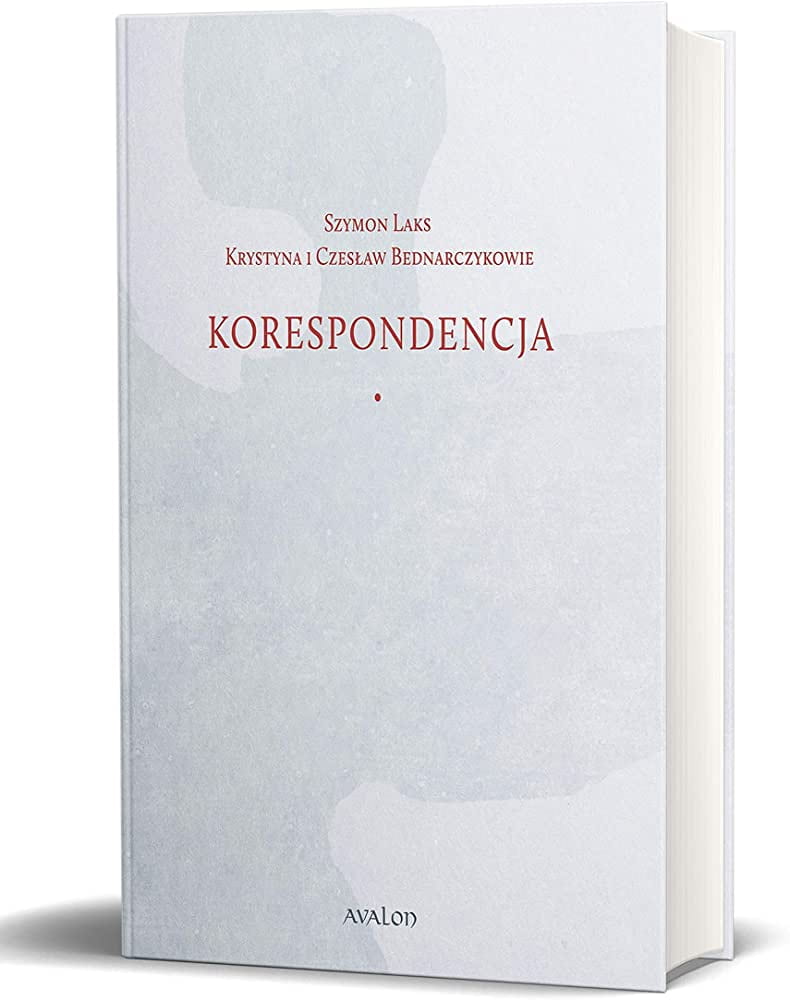
In addition to a great assortment of CD recordings, SPMK’s Grzegorz Mania also donated to us a fascinating book entitled Szymon Laks—Korespondencja. It is an imposing (almost 500 pages!) compendium of the correspondence of composer Szymon Laks with Krystyna and Czesław Bednarczyk. The letters featured were exchanged between May of 1978 and December of 1983, shortly before Laks’s death. Published in Kraków in 2018 by Avalon, this captivating volume is edited by Jadwiga Malik, who added an excellent introduction (spotlighting Laks’s considerable literary activities and his close relationship with his Polish publisher in London) and also provided a detailed biography of the composer. This superb resource on Laks is highly recommended to anyone interested in researching the life and work of this exceptional artist.
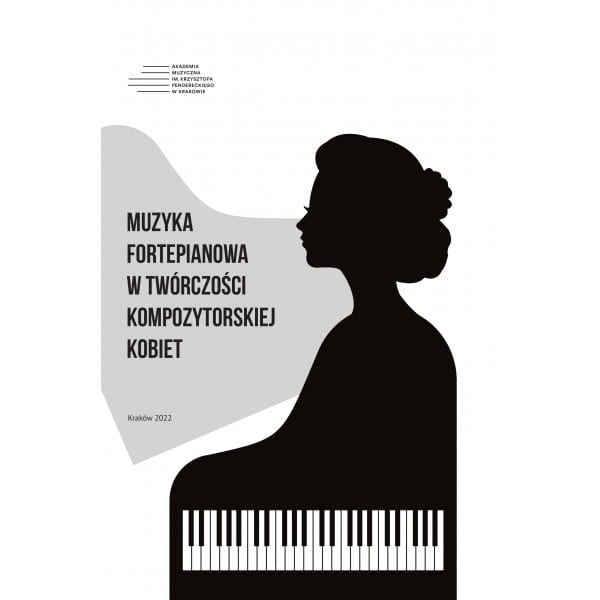
Another volume that will enrich our library also came from SPMK member, pianist and Kraków Music Academy professor, Piotr Różański. He served as the editor-in-chief for the publication, Muzyka fortepianowa w twórczości kompozytorskiej kobiet [Piano music in works by women composers]. Published by Kraków Music Academy in 2022, it will be an excellent resource for pianists interested in underexplored areas of Polish piano literature. The first and larger section of the book focuses on women composers active in Poland and features articles by Marek Szlezer (on Jadwiga Sarnecka), Maciej Kiełpiński (on Natalia Janotha), Katarzyna Vernet (on the mysterious “Poldowska,” actually Henryk Wieniawski’s youngest daughter), Anna Wróbel (on Amelia Załuska), Aleksandra Dąbek (on Władysława Markiewiczówna), Mateusz Kurcab (on Ewa Synowiec), and Piotr Kowal (on Joanna Bruzdowicz). The second part covers many women composers from elsewhere in the world, carefully depicted in extensive articles by Aleksandra Biśta, Piotr Różański, and Małgorzata Janicka-Słysz.
Oratorio of Cardinal Stefan Wyszyński
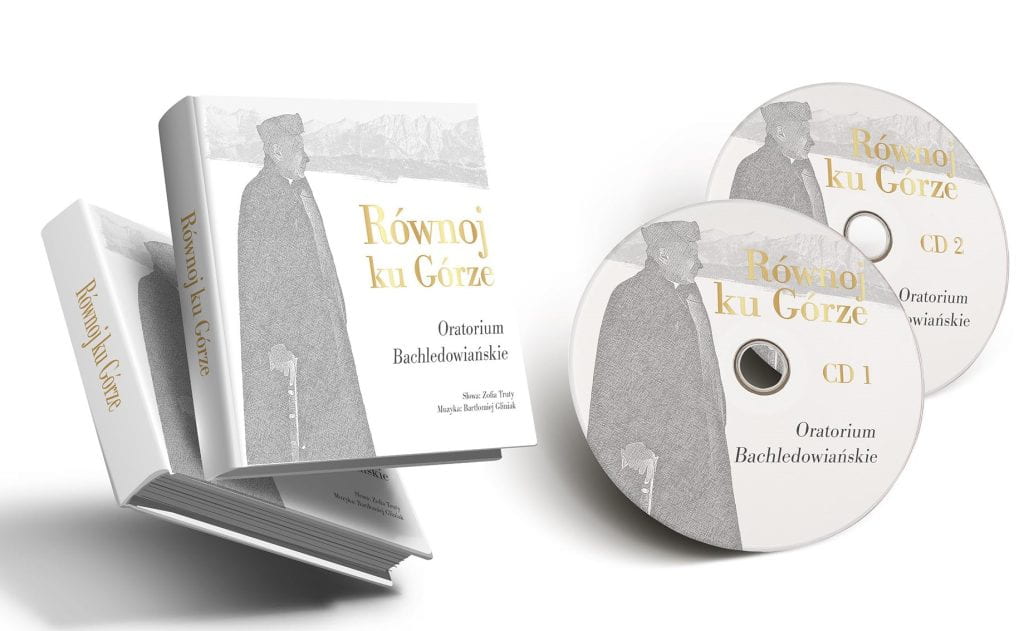
Zofia Truty, author of the libretto to Równoj ku Górze—Oratorium Bachledowiańskie [Rise Up—the Bachledówka Oratorio] sent us a rare 2-CD set recording of the work composed to her words by Bartłomiej Gliniak. This captivating and unusual work is dedicated to the “memory of the Primate of the Millenium,” Cardinal Stefan Wyszyński (1901-1981). Bachledówka is a mountain monastery-retreat, where Cardinal Wyszyński traveled for extended summer vacations during the years 1967-1973.
Born in the village of Czerwienne, under the shadow of the Bachledówka itself, Zofia Truty is a Highland native and a poet of that very special region in southern Poland. The Oratorio’s title is taken from the famous sermon delivered by Cardinal Wyszyński in Zakopane—the heart of the Polish Highlands—in August of 1957. Premiered in Kraków in September 2022, the composition utilizes Highlanders’ folk music and local dialect, regional instruments and singers, as well as a full symphonic orchestra and choir.
We thank all our benefactors and supporters for these wonderful gifts. Dziękujemy!
